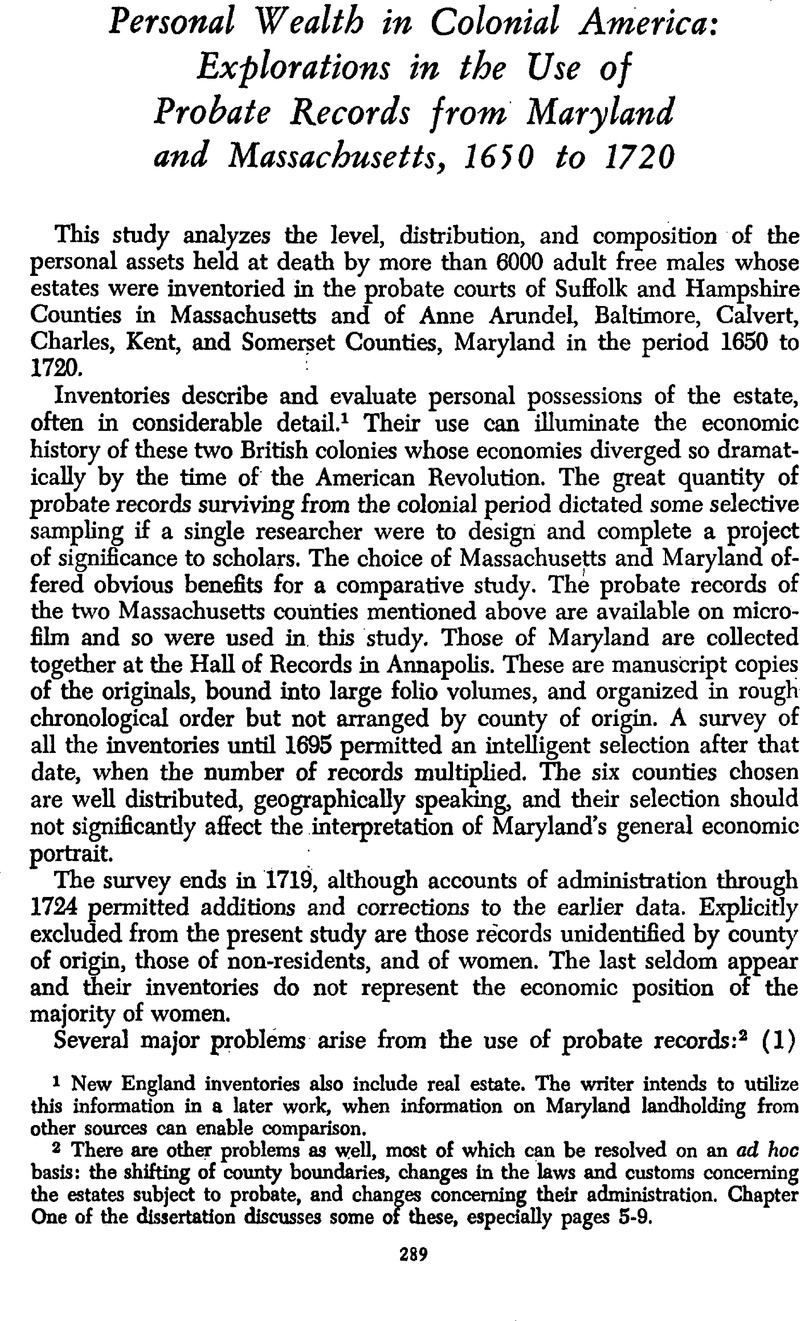Article contents
Personal Wealth in Colonial America: Explorations in the Use of Probate Records from Maryland and Massachusetts, 1650 to 1720
Published online by Cambridge University Press: 11 May 2010
Abstract

- Type
- Summaries of Doctoral Dissertations
- Information
- Copyright
- Copyright © The Economic History Association 1974
References
page 289 note 1 New England inventories also include real estate. The writer intends to utilize this information in a later work, when information on Maryland landholding from other sources can enable comparison.
page 289 note 2 There are other problems as well, most of which can be resolved on an ad hoc basis: the shifting of county boundaries, changes in the laws and customs concerning the estates subject to probate, and changes concerning their administration. Chapter One of the dissertation discusses some of these, especially pages 5–9.
page 291 note 3 Curti, Merle, The Making of An American Community (Stanford, Calif.: Stanford University Press, 1959), p. 78.Google Scholar The selection was not arbitrary but based on other published structures and one calculated for Windsor, Connecticut, 1680–1700, by Jackson T. Main.
page 291 note 4 Accounts of administration are missing for a majority of Maryland and Massachusetts estates and this deduction from gross personal wealth would have to be estimated in any case.
- 1
- Cited by




